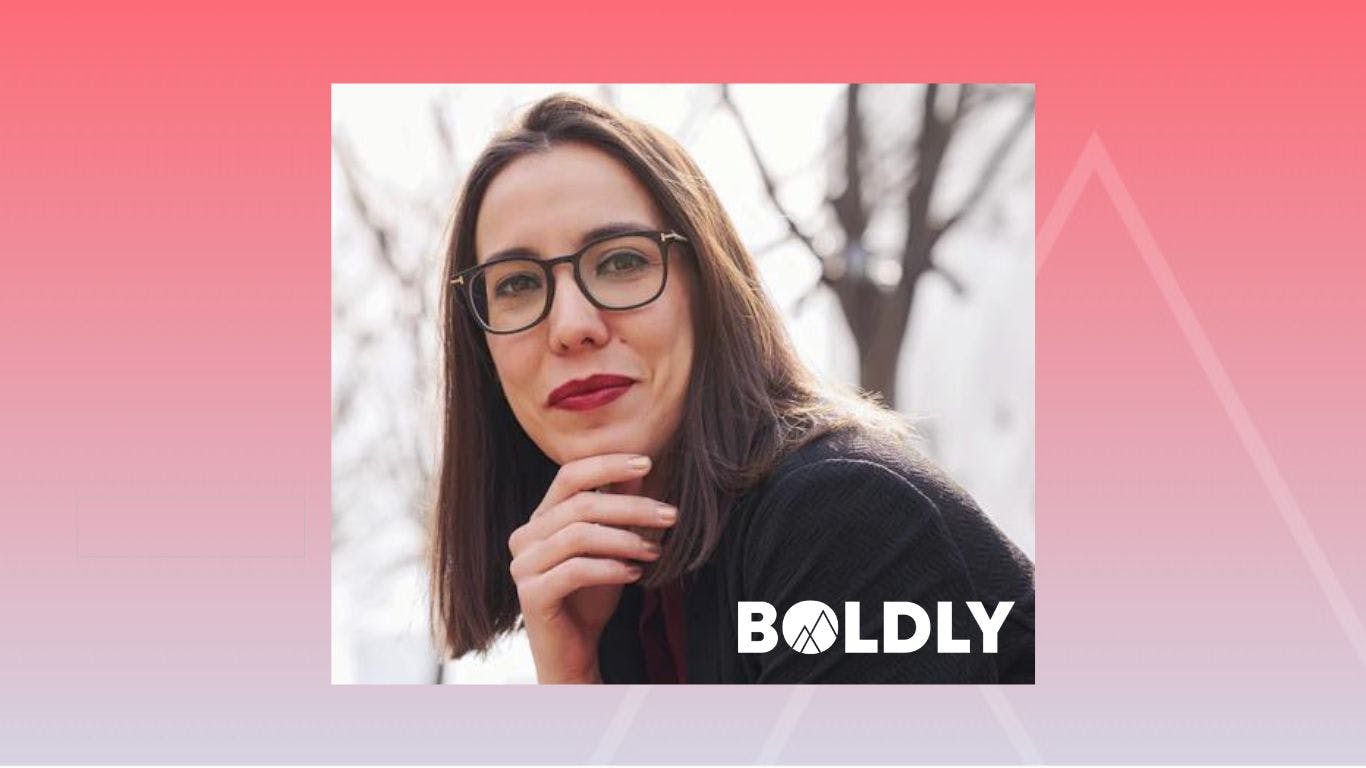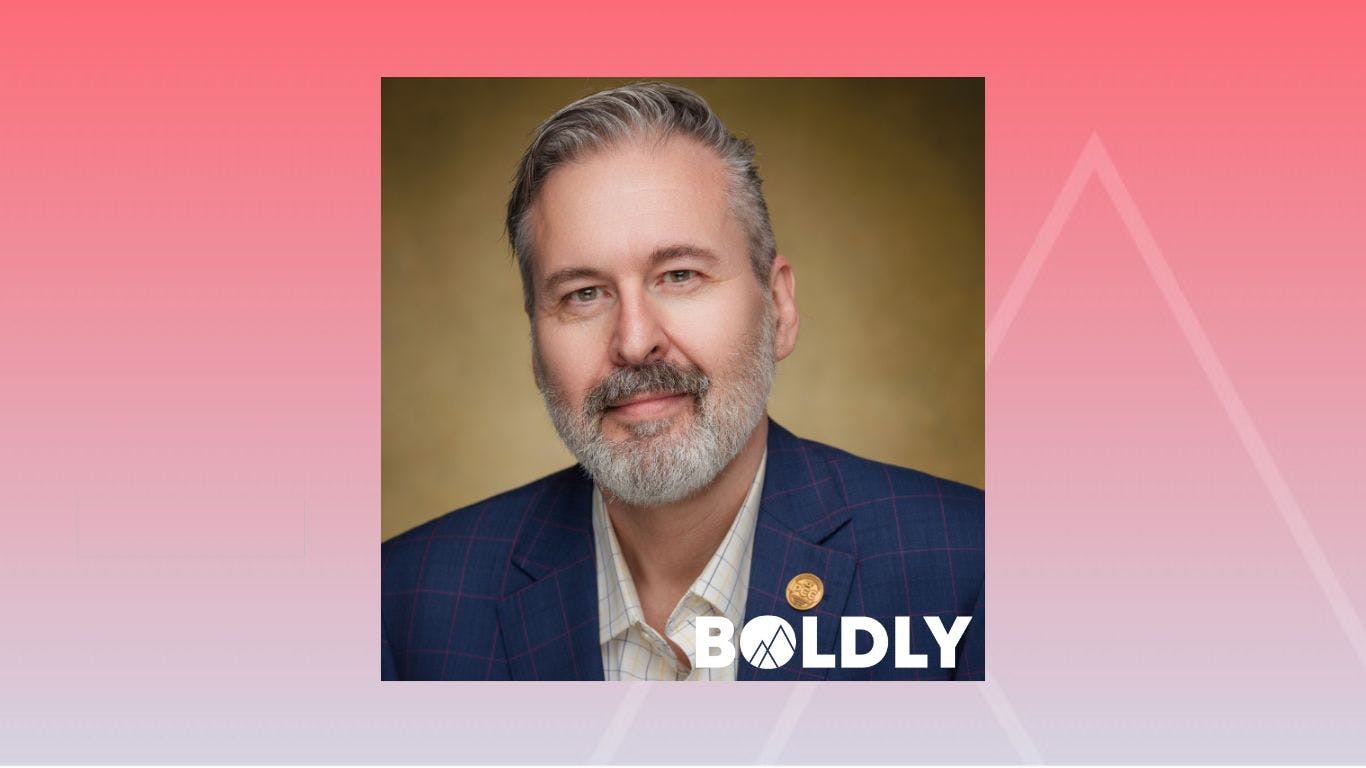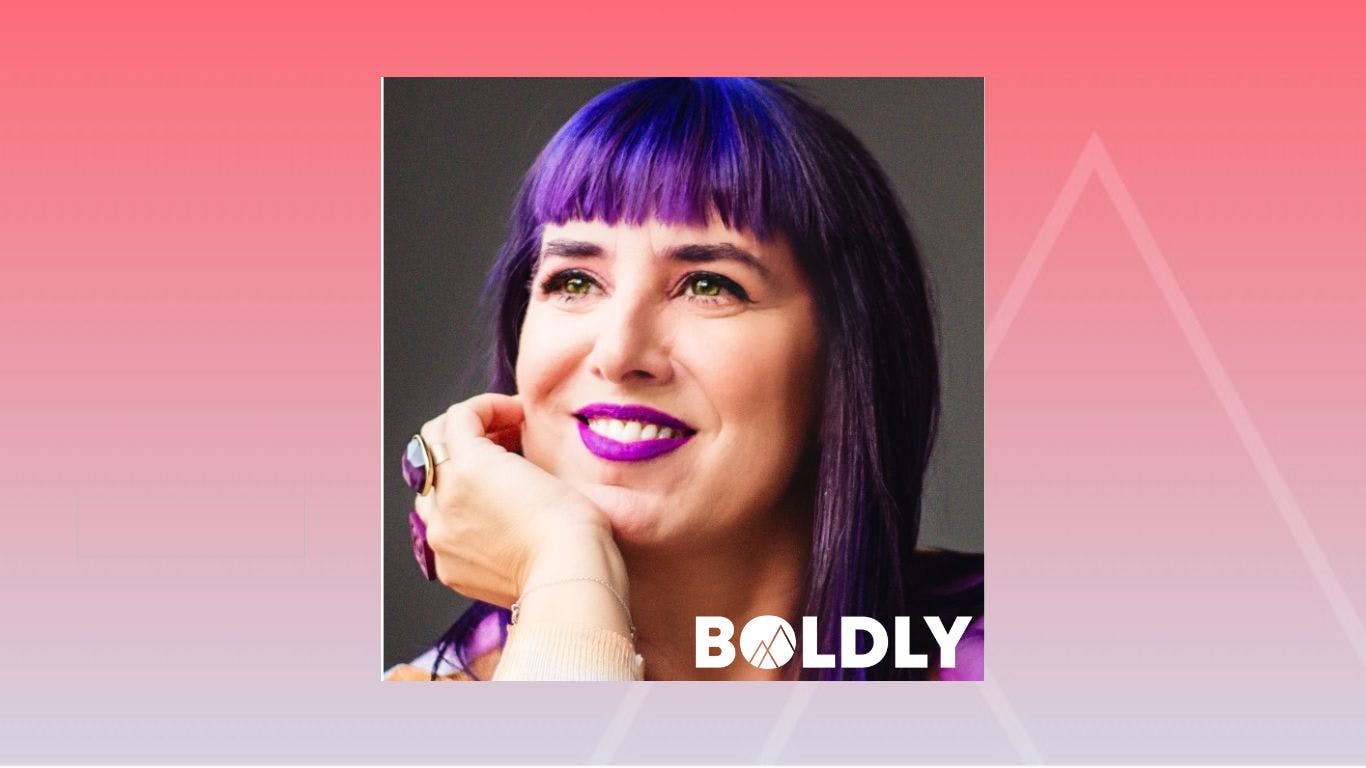Coach Spotlight: Coach Maria
Joining us from the People's Republic of China, for this week's BOLDLY Coach Spotlight is TEDx Speaker, Coach Maria! Thank you for joining us Coach Maria- we are excited to have you with us this week!
1. Where were you born, and what are some of your favorite childhood memories?
I was born and raised in Italy, near Milan. I have a lot of great childhood memories; probably my favorites are playing a made-up game involving roller skates, brooms, and a ball with some friends in the park in front of my house, car trips with my parents to Scotland, Germany, and the Netherlands. I have been very lucky that my parents prioritized travel and visiting new places as family time, so I grew up experiencing a lot of different environments from a relatively young age.
2. Where do you live now and what do you enjoy doing in your downtime?
Speaking of different experiences, I have been living in Shanghai, China for the last 14 years. It’s been a rewarding and challenging journey, but I do feel sometimes more at home here than in Italy.
Being an entrepreneur, I have to actively carve out “down-time” for myself, as when I started to work on my own I tended to pack my schedule as much as possible with projects and meetings. I now have a relatively more balanced approach where I work long hours when delivering a project and to recharge I love spending time to myself or with few close people. I love watching movies and discussing them, as well as spending time with friends and exercising (mostly running). I am an avid reader and lately I have re-discovered paper novels as a way to disconnect from screens and immerse myself in new stories every time.
3. Last year you were selected as a speaker at TEDx - Congratulations! - Can you tell us about your message?
Thank you! The TEDx experience was a wild and rewarding one, and also a bit stressful to be honest. I was asked to speak by NYUShanghai on the topic of cross-culture, which is the core aspect of my work, both in training and coaching. I really wanted to share the idea that we need to talk about how we communicate because it is so easy to misunderstand each other and assume intentions.
It may sound simple, but “having conversations about how to have conversations” is a key tool for personal and professional development in any context requiring dealing with other people. The work is in making sure that we ask questions and listen to what is being said (and not said) and hold judgment instead of focusing on what could be done differently, much like in coaching!
For those who are interested, here is the link to the talk (which includes a funny anectode of my first days in China right at the beginning): https://youtu.be/Tu1bDTr4eyo?si=6b_K0X9XfAZsE7aE
4. You are also an accomplished author having released "Simple Time Management Tools for Clarity: Easy guidelines to help you feel less overwhelmed and achieve more". Can you tell us a little about the book and what inspired you to write it?
Earlier in my career, I focused a lot on helping leaders be more effective, and better time management was a topic that came up a lot!
In 2020, while I was stuck in Italy during the pandemic, unable to return to China, I wanted to collect some of my ideas about managing time and dealing with priorities to have a practical project to redirect my focus. And that is how the book was created. In my training and coaching work, I now focus on helping leaders and teams collaborate and communicate and time management is less of a prominent topic, but priorities are always a challenge for many clients!
5. What initially drew your interest to coaching?
I started my career in training and loved the group dynamics and the learning that can happen in a facilitated discussion. I also saw that many leaders and managers, while learning great skills during training sessions, they had trouble to keep up the implementation of the skills or they felt that they didn’t really get as much value in their daily work. I was aware of coaching but I had not had familiarity with it until I started joining more coaching-oriented communities and events and realized that this was exactly the type of support that many leaders were missing.
Now, depending on the need, I can support my client with facilitaton, individual / group or team coaching and it opens up a lot more possibilities to create awareness and create change.
6. Which style of coaching do you find to be most effective?
I am quite a straightforward person and my coaching style reflects that. I don’t subscribe to any particular coaching school or trend, and I believe that the most effective coaching depends on what the coachee needs. Some clients need more of a guided support, some others need more direct reality checks.
Utlimately, the best results from a coaching journey are due to the coachees’ effort and work outside the sessions!
7. In companies looking to build their internal coaching culture, where would you recommend they begin?
Practice asking questions and listening to understand, not to answer. Of course a company-wide culture takes time and intentional practice to grow, but the first step is encouraging everyone, at every level of the organization, to first, ask more questions during meetings and 1:1s, and second, listen to what is being said (and keep an ear out for what is not being said) and clarify understanding with more questions.
This practice brings so much awareness to the importance of curiosity and active listening while at the same time breaking a little bit the habit we all have which is to immediately share our opinion or give advice or talk about ourselves at the first chance.
8. Can you tell us about the experience you have had working across different industries?
I have started my career in the coaching and training industry, in Organizational Development consulting and then I transitioned to sales and project management for services in the manufacturing industry.
I found that I was not very suited to the latter as, despite being an introvert, I enjoy connection and discussion with people about ideas and behaviors, and much less about numbers and spreadsheets. It was a very formative time as I learned a lot about systems, I had the chance to lead different kind of teams and work with very interesting companies. But in the end I went back to the talent development industry and I am much more in my element here!
9. What coaching engagement has been the most impactful to you and why?
Lately, I had a coaching client struggling to deal with their emotions and a particularly challenging company and team situation. They were lukewarm to the idea of coaching going into the engagement and were somewhat reticent to open up at the beginning. Still, after a couple of sessions, they told me that it was the first time they had the chance to share all their thoughts i such a raw way, and that alone helped them see better what they needed in order to move forward. This was extremely impactful to me because it was a clear example of the power of conversation and seeing someone recognize their own needs sparked a whole new level of awareness that would have been unlikely without coaching.
10. Lastly, do you have any advice for someone wanting to pursue coaching as a career?
Despite what you might see, being a professional coach is not about being an expert in all the topics; it’s about using coaching to support people who are experts in their topics (whether it’s their life or their work, or both).
Thank you again Coach Maria for joining us in this week's BOLDLY Coach Spotlight! To book a complimentary 30-minute chemistry session with Coach Maria, or to learn more about the services we offer at BOLDLY, visit www.boldly.app or email connect@boldly.app


